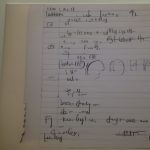What Angry Birds Can Teach You about Acing the ACT
The ACT Exam may be one of the first (and best) impressions that you leave for the colleges and universities of your choosing. Landing a great score can also earn you some much-needed financial assistance to reduce the burden or the need for college loan debt. But preparing for the exam can be quite a daunting task, especially if it is your first time taking it. We believe Angry Birds can help. Read on to find out exactly What Angry Birds Can Teach You about Acing the ACT. You may be surprised.
1. Different birds do different things.
Forgive us if these little guys have actual names and we’re not getting them exactly right. We’ll just give a little description of each one. White bomber. Black bomber. Yellow missile. Tiny bird trio. Red bully and his little brother. Balloon bird. The Angry Birds game is so much fun because it incorporates multiple bird types in helping you to lay waste to the Bad Piggies’ various hideouts. You may have never thought of the ACT in this manner, but it’s important that you start to. By integrating learning concepts into the world around you – even into the way you live and the fun you have – you will find yourself more adequately prepared for exam day. That being said, note that different birds do different things. It will be important as we continue.


The ACT has four different sections: science reasoning, math, reading and English. Some of the skills and concepts may cross over, but for the most part, you’ll be dealing with something new on each portion.
Examples: Science reasoning requires reading comprehension and an understanding of physical science, biology and other high school-level scientific concepts. Reading also utilizes reading comprehension and places a heavier emphasis on solid vocabulary techniques, such as building textual connections and determining meaning using context clues. Additionally, it requires you to understand basic facts as they are presented and thematic interpretation.
Know which “birds,” or pieces of knowledge, are best-suited for the task, and use them accordingly.
3. Add birds to your arsenal.
You don’t start the Angry Birds game in any of its various versions with all the bird-weapons that you will need to master every level. As you go along, you will pick up some of the more destructive little guys, and they will help you to accomplish tougher tasks as the game progresses. Let this be a lesson as you prepare for the ACT. Especially if you are taking the test early in your high school career, you may not know everything that will be asked.
That’s where hitting the books and preparing for exam day come into play. Don’t go in cold. The ACT is too challenging and too expensive to waste an opportunity. Instead utilize the time you have before the big day to add birds (knowledge) to your arsenal. One of those birds should include familiarizing yourself with the actual testing environment. Take multiple practice exams in the weeks leading up to the real deal, and you’ll notice an impressive score.
4. Sometimes the right bird for the job isn’t the most obvious.
When playing Angry Birds, it’s tempting to fire your most destructive or explosive guys at the heaviest structural components, but as you play further, you’ll notice that sometimes finesse shots are more effective than blunt force trauma.
The ACT has numerous situations like that, especially on the math portion of the exam when working in steps is so important. Getting one step wrong often leads to the wrong answer, and more often than not, it’s caused by a basic oversight of something you think you know so well. Mathematical word problems are notorious for tripping up a test-taker, who is focusing too hard on how much time he has left instead of what is being asked of him.
5. Slight deviations can produce completely different results.
This one ties in to the No. 4 entry. Ever been playing a round of Angry Birds when you came across a board that was similar in structure to a previous one, but for some reason, none of the techniques you use offer the same results? Often, this is because of one minor little detail that you are overlooking, and once you figure it out, you’re able to bring down the house with one shot. The ACT is similar with the attention to detail that it requires.
Each section tests your ability to pay attention to detail. When you get frustrated, move on to what works. Maybe that means answering the questions that are obvious first and then coming back to the more challenging ones when the dust settles and you can clearly see what’s left. Or maybe it means looking at the answer options first, crossing out the ones that are obviously wrong and then connecting the dots between what you know and what is possible.
6. Understanding basic architecture can help you topple more complex structures.
Remember the first time you used the three-bird trio to cut through ice blocks or fired a yellow bird through a thin piece of wood? With a little experimentation, it became easier to tell which birds were best for the different architectural setups that the game threw at you. By understanding the basics, you were able to advance your knowledge to more complicated structures. You may have even been surprised to find the final boss board was easier than the third level in the first world. Similarly, ACT questions hide a little of the basics even in some of their most challenging questions. By knowing the fundamentals, it becomes easier to unravel the mystery.
7. Keep your sense of humor.
Humor isn’t just about the laughs. It’s also about being pleasant and easy to be around. Now we’re not saying the ACT is fun, but we are saying that you can take a page from Angry Birds and not take it too seriously. The Angry Birds game works because it’s relaxing and challenging and features a great sense of fun. While you’re not going to be doing somersaults on test day, you can have good humor about it and realize that the weight of the world won’t come crashing down on your shoulders. You don’t beat Angry Birds the first time you play it without experiencing a little bit of failure. But what do you do? You learn from that failure and try again. Remember this before, during and after test day.









